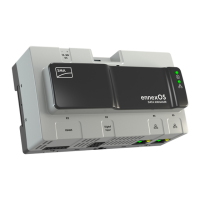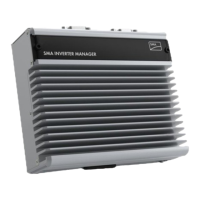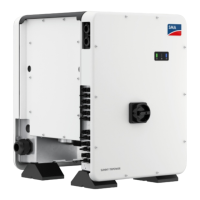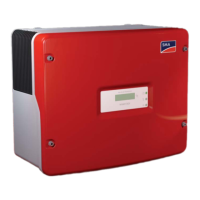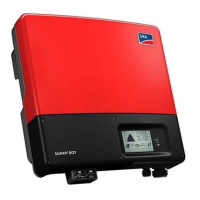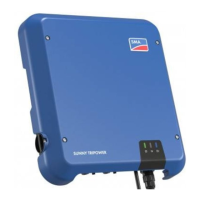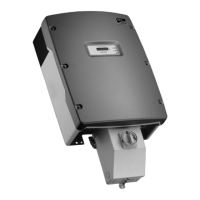13.3.3.6 Reactive Power Setpoint via Standard Signal: VArCnstNomAnIn Mode
The reactive power setpoint is set at the input terminals for the setpoints via an analog signal. This is usually
implemented by a ripple control signal. The analog value is converted into a reactive power setpoint. The electrical
current strength of the connected signal determines the setpoint. The analog measured values must be between
4mAand19mA. If the analog signal is less than 2mA, an error message will be displayed in the instantaneous value
Q‑VArModFailStt.
Signal Power limit Description
<2mA Last valid mean value or 0kVAr after
restart
Signal is in the invalid range.
2 mA to 4 mA
Qmax / underexcited
The maximum amount of negatively excited reactive
power is fed in.
4mA
Qmax / underexcited
Start point of the characteristic curve
The maximum amount of negatively excited reactive
power is fed in.
11.5mA 0 kVAr Zero-crossing of the characteristic curve
No reactive power is fed in.
>19mA
Qmax / overexcited
End point of the characteristic curve
The maximum amount of positively excited reactive
power is fed in.
The analog value is converted to a setpoint for power limitation. Here, the parameter Qmax forms the end point of the
linear characteristic curve.
Figure 68: Limitation of the reactive power to the parameter Qmax
13.3.3.7 Reactive Power Setpoint via Displacement Power Factor cosφ: PFCnst Mode
The reactive power setpoint is set via the parameters PF‑PF and PF‑PFExt. The parameter PF‑PF indicates the
displacement power factor cosφ and the parameter PF‑PFExt indicates the degree of overexcitation or
underexcitation.
13 Function Description
SMA Solar Technology AG
System Manual 193MVPS22JP-SH-en-11
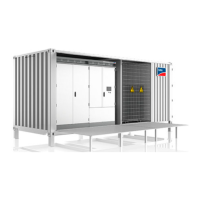
